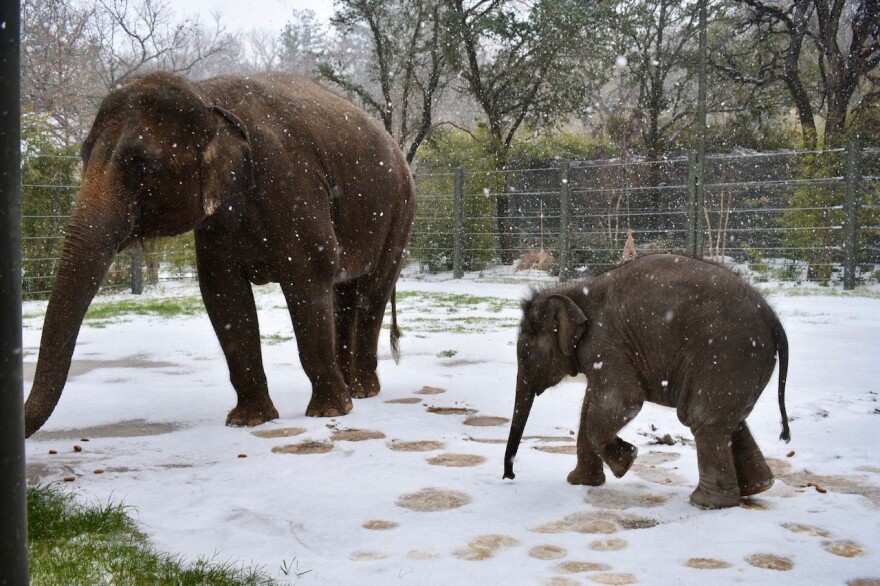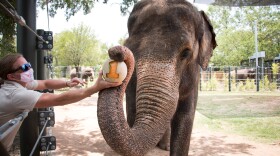The Dallas and Fort Worth Zoos may be closed Friday due to icy conditions, but that doesn’t mean staffers get the day off.
Days before major weather events like this week’s winter storm, zoo employees jump into action by checking heating and water systems, salting pathways and corralling animals into indoor enclosures.
“Our nutrition team was working in overdrive preparing diets for all of the animals,” Fort Worth Zoo spokesperson Avery Elander said. “With 7,000 mouths to feed, they certainly have their work cut out for them.”
It’s a little more involved than leaving out extra kibble.

Kerri Slifka, curator of nutrition at the Dallas Zoo, says staffers have stayed at or near the zoo since Wednesday to care for the animals.
“When we know we’re going to get a major storm, there’s usually people staying overnight to keep an eye on heaters and buildings and critical animals,” she said. “Power outages are always a big concern. We just try and stay out of our coolers and freezers as long as possible so we can keep them as cold as possible.”
Due to supply-chain issues related to the pandemic, Slifka’s team already keeps a healthy stockpile of food and other supplies.
“We’ve always got at least a month’s worth of our frozen meat, fish and prey items and at least a month’s worth of our dry feed,” she said.
The snow doesn’t have a major impact on most zoo animals since they are moved into indoor enclosures. The real challenge is transporting supplies.
“Normally, we’re packing all that stuff up and going out in the park in the dark,” Slifka said. “When it comes to storms like this, we shift over to transit vans because it’s too cold to be out in the golf carts, and things will freeze.”
The ice and snow don’t just present challenges for zoo staff. It can also be an enrichment opportunity for some species.

This week, Brazos, a 3-month-old elephant at the Fort Worth Zoo, saw snow for the first time.
“He dipped his trunk into it and kind of tiptoed out and ran back in the barn,” Elander said. “He wasn't too sure what was going on. His mom went out and spent some time outdoors, so he eventually appeared to be brave enough to go outside and walk around with her.”
Species native to Texas like the Fort Worth Zoo's longhorn calf are more inclined to venture outdoors during icy weather.
For animals who cannot be out in the snow too long, Elander says zookeepers bring samples inside.
“One of the rhinos was dipping her horn in it and eating it,” she said. “Our younger male rhino, Crockett, didn’t seem to care for it. He just pecked out his food that the keepers buried in the snow.”
Indifferent rhinos aside, neither zoo has reported major upsets like power outages or facility damage during this week's storm.
Got a tip? Email Miguel Perez at mperez@kera.org. You can follow him on Twitter @quillindie.
KERA News is made possible through the generosity of our members. If you find this reporting valuable, consider making a tax-deductible gift today. Thank you.




